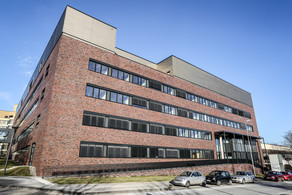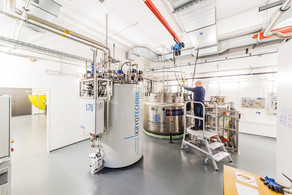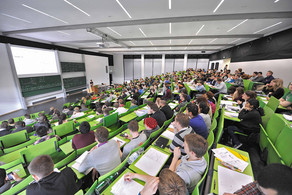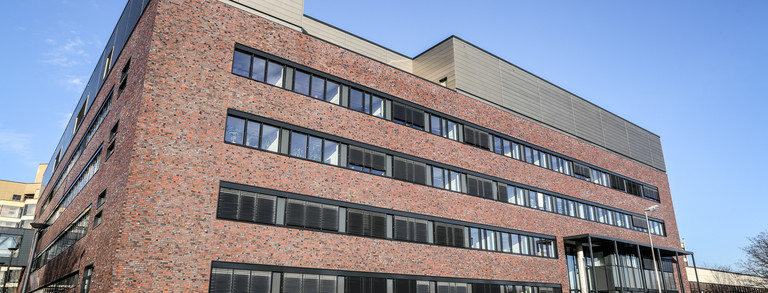Thesis defense of Markus Stabrin
- Defense
Single particle cryo-EM is getting increasingly accessible to researchers from diverse research areas. Furthermore, recent innovations in cryo-EM hardware development and data acquisition strategies have led to an increase in data quality as well as quantity. However, the overall quality of a data set does not directly correlate with the quality of a single image or the number of images collected, but also strongly depends on the sample itself. Nevertheless, with great data comes great responsibility and just having a large data set is not necessarily advantageous. To get the most out of a data collection, the researcher needs to carefully monitor and curate all data, ideally while its still being collected. Therefore, automated data processing and the analysis of the collected data live during acquisition becomes increasingly important. To get the most information in the shortest amount of time, ideally, all major pre-processing steps would be executed while the data are still collected. In this way, the researcher gets direct feedback about the sample quality and has the chance to make necessary adjustments to the data collection. While there are several tools available to execute the processing pipeline, they all use a static set of input settings for each individual task, limiting their applicability. In this thesis, I present TranSPHIRE, a tool for fully automated on-the-fly data processing. It executes all the important pre-processing steps required for the processing of single particle projects, as well as filamentous samples, in a parallel manner. Additionally, the important metrics of each processing step are presented via the TranSPHIRE GUI, allowing a fast evaluation of all parameters and the data collection itself. TranSPHIRE also includes a machine learning based feedback loop, which enables the optimization of particle picking for any given sample. Specifically, the loop performs iterations of particle picking, 2D classification, and 2D class selection, followed by training of a new model for particle picking. The curated particles can subsequently be subjected to a 3D refinement within TranSPHIRE. For further analysis, the output particles and volumes can eventually be transferred to other software packages, such as SPHIRE. I demonstrate the capabilities of the TranSPHIRE pipeline based on three different scenarios: A previously unknown data set; a data set consisting of two sub-populations, where only one is targeted for particle picking; and a filamentous sample. All three scenarios lead to a high-resolution 3D reconstruction of the target protein in a fully automated manner. Therefore, fully automated data processing and ptimization could pave the way for high-throughput screenings of unknown samples without user intervention. Despite decades of research, processing of filamentous cryo-EM samples remains challenging. One of the reasons is that most 3D refinement approaches require prior knowledge about the helical symmetry parameters. However, for most samples the helical symmetry differs locally, leading to model bias, low-resolution results, or even incorrectly reconstructed structures. Here, I present sp_meridien_alpha.py, a modification of the single particle 3D refinement program sp_meridien.py, to allow filamentous processing in the SPHIRE package. My refinement approach utilizes filamentous constraints to help convergence and does not require previous knowledge about the helical symmetry. Based on two examples, a tobacco mosaic virus and an actomyosin data set, I show that the final resolution and overall map quality achieved by sp_meridien_alpha.py surpasses the one achieved by sp_meridien.py. In summary, the software tool TranSPHIRE and the filamentous 3D refinement program sp_meridien_alpha.py combined simplify the cryo- EM data collection and processing and thereby present a valuable contribution to the field.









